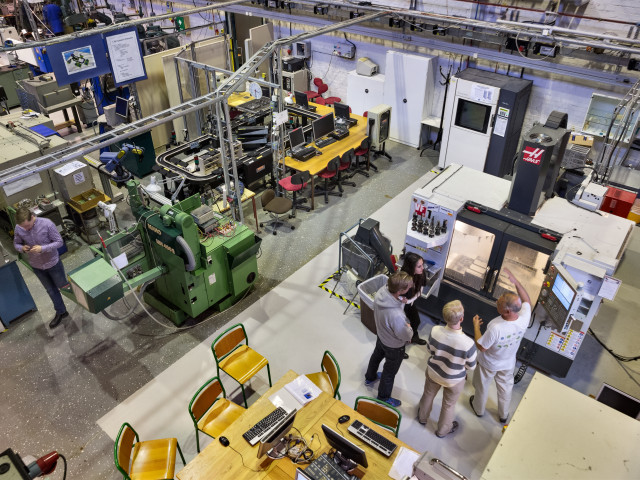Learning activities
Before the degree project course starts, the student shall identify an appropriate degree project task and formulate a project proposal that can be presented to the examiner for approval. The assignment should be chosen, so that it implies a natural progression of the knowledge and skills that have been acquired within the education and in a possible specialisation within the education.
The student must write an individual plan for the degree project in which the problem description/assignment and the preconditions for the implementation of the work are specified. The individual plan for the degree project should contain background including problem description and scientific issues, purpose, objective, demarcations, the project's relevance [1], methods and time plan for the implementation of the degree project. The individual plan shall also include a brief self-reflection where the student accounts for her/his knowledge to carry out the assignment and the planning for how potential remaining courses, that are required for higher education qualification, shall be completed. The individual plan, for the degree project, shall be approved by the examiner.
The student carries out an in-depth pre-study including discussions of method choice and theoretical background with a literature study that is reported as part of a draft to a preliminary version of the written degree project report.
The student carries out an individual independent project where knowledge and methods, from the education, are applied.
The student plans and carries out an oral presentation and defence of his or her degree project.
The student carries out an oral and written review of another degree project on the same level.
The student writes and presents a written degree project report, where the student clearly accounts for and discusses own conclusions in the degree project and the knowledge and the arguments that underspin them.
The student carries out a self-assessment of the degree project according to the model of "Assessment of the quality of degree project for Degree of Master of Science in Engineering and Degree of Master of Science".
[1] With relevance be intended relevance in relation to the education, current research and development in relation to the specialisation the student studies and relevance for stakeholder and
The purpose of the degree project is that the student shall apply and deepen his or her knowledge, understanding, abilities, and approaches within the context of the education. The degree project shall be carried out towards the conclusion of the education and imply a specialised study and synthesis of earlier acquired knowledge. In the degree project in an engineering programme is emphasised both the technical/scientific content and method knowledge.
After completed degree project, the student should show such proficiency that is required to work independently as a Master of Science in Engineering/Master of Science, according to the national qualitative targets for the Degree of Master of Science in Engineering and Degree of Master of Science in the Higher Education Ordinance. These include:
- considerably advanced knowledge within the main field of study/the specialisation for the education, including advanced insight into current research and development work,
- specialised methodological knowledge within the main field of study/the specialisation for the education,
- ability to participate in research and development work and so contribute to the formation of knowledge
- ability to holistically, critically, independently and creatively identify, formulate, analyse, assess and deal with complex phenomena, issues and situations even with restricted information,
- ability to plan and with adequate methods undertake advanced tasks within predetermined time frames as well as the ability to evaluate this work
- ability to create, analyse and critically evaluate different technical/architectural solutions,
- ability to critically and systematically integrate knowledge and ability to identify the need of additional knowledge
- ability to in English in speech and writing clearly report and discuss his or her conclusions and the knowledge and arguments on which they are based
- ability to within the frames of the degree project identify the role of the scholarship and the engineer in the society
- ability to within the frame of the specific degree project be able to identify which issues that need to be answered in order to observe relevant dimensions of sustainable development, and
- ability to within the frames of the degree project assess and show awareness of ethical aspects on research and development work with respect to methods, working method and results of the degree project.
